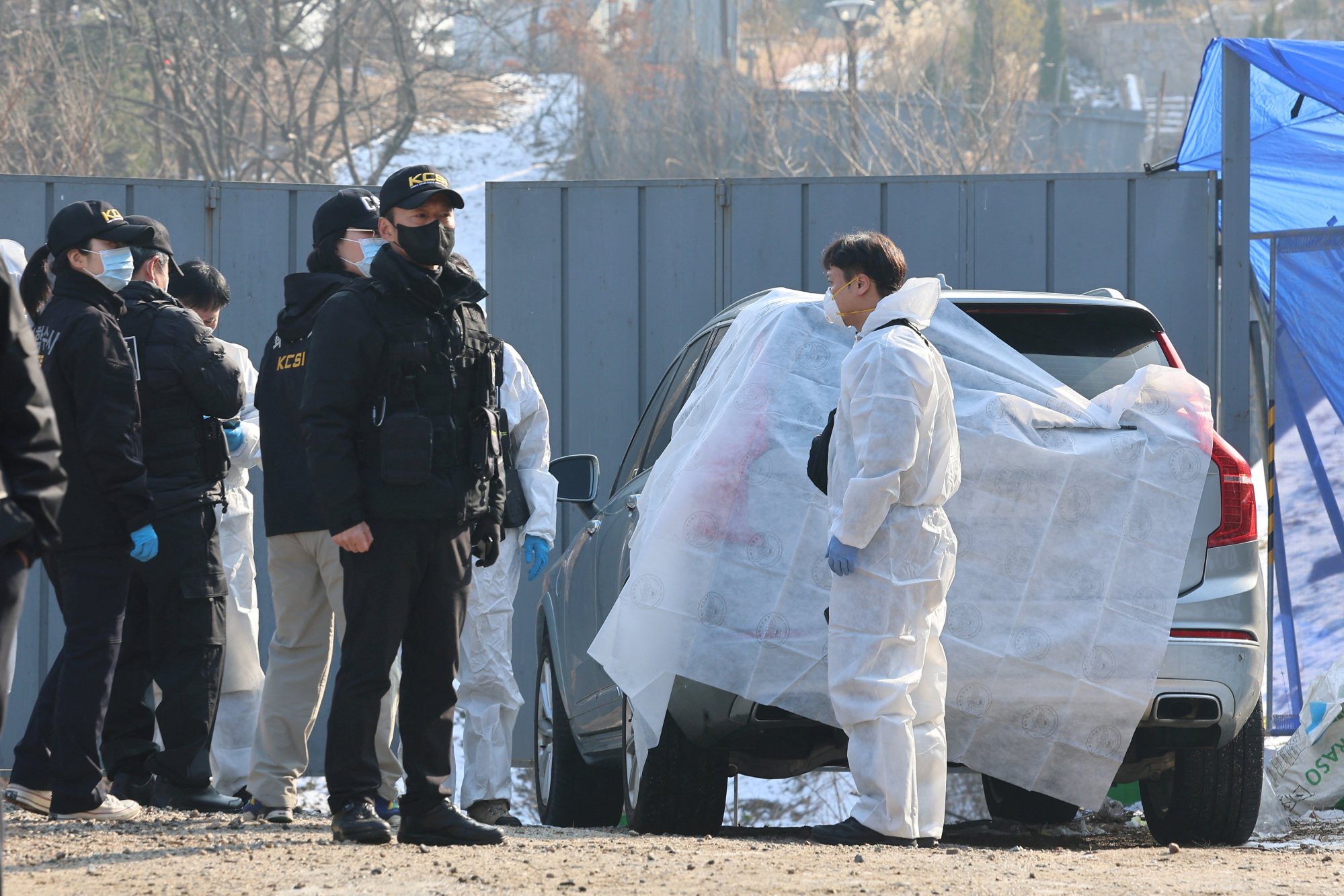
In South Korea, Parasite actor Lee Sun-kyun’s suicide spotlights privacy concerns over drug probes
- Lee’s passing raises questions about privacy and media exposure during police investigations, particularly for public figures
- The actor’s death amid a government-led anti-drug campaign underscores intense scrutiny and public pressure faced by celebrities in South Korea
Lee, 48, was laid to rest on Friday, with his cremated remains placed in a memorial park in Gwangju, 32km southeast of Seoul. He is survived by his wife, actress Jeon Hye-jin, and their two children.
He was found dead in a car in Seoul on Wednesday after weeks of intense police investigation into his alleged drug use.
Police in Incheon City near Seoul summoned Lee three times – on October 28, November 4 and December 23 – and each time he was exposed to a horde of TV camera crews and photographers, despite his requests for privacy.
South Korea police defend drug probe of ‘Parasite’ actor who was found dead
Lee also had to go through a humiliating “photo op” session each time, a procedure during which the accused is usually made to stand before awaiting media cameras and answers questions for a minute or so.
South Korean police regulations stipulate that they should not, in principle, allow the media to film a suspect presenting themselves to the police for questioning. If filming is unavoidable, precautions must be taken to ensure that their faces and names are hidden from the media.
However, observers say these rules are often ignored due to intrusive journalists and overzealous authorities who hope to impress the public and their superiors with their investigations into high-profile suspects.
“Celebrities’ rights to privacy are often less respected than those of murderers, rapists or robbers, whose faces are kindly covered by face masks and hats when they appear before media cameras while presenting themselves for questioning by authorities,” Chung Suk-koo, a former senior editorial writer at the independent Hankyoreh newspaper, told This Week in Asia.

During the first 10 months of this year, the number of traffickers and users rose 48 per cent on the year to an all-time high of 22,400, according to government statistics.
“Entertainment workers are easy prey for authorities, who are under pressure to deliver results, as the government is quite eager to show off quick results to the public in the war against illegal drugs”, Chung said.
Before his third and last questioning on December 23, Lee’s lawyers asked police to let Lee enter the police office building through an underground car park to bypass TV cameras waiting outside the building.
But police reportedly refused, citing safety risks. Police argued the sudden change of his movement line would spark a stampede among the crowd of TV crews, photographers, journalists rushing to intercept Lee.
National Police Agency head Yoon Hee-Keun on Thursday admitted to the need to bolster regulations to better protect the privacy of suspects.
But he put the blame on the news media for Lee being repeatedly exposed to the public view while responding to summons by investigators.
Parasite actor Lee Sun-kyun’s leading movie and drama roles recalled
In response to why police refused to allow Lee to avoid TV cameras before his last appearance at the police building, Yoon shot back: “Then, wouldn’t you (journalists) raise hell with us?”
“I liked him personally. I was also shocked at the news (of his death) which I find quite regrettable”, the police head added.
Lee had claimed he was tricked into using drugs by a bar waitress, who subsequently blackmailed him into giving her 300 million won ($232,000) in September.
But Lee’s drug tests, including both hairs and urine samples, all came out negative, fuelling criticism that police should have treated him as a blackmail victim rather than as a drug user.
South Korea’s drug policy is one of the strictest in the world. Its citizens can be prosecuted for using illegal substances such as cannabis while abroad — even if they are in a country where the use of such drugs is legal — should they test positive for the substance after returning to South Korea.
The social stigma attached to individuals who have substance use disorders is also intense and, for celebrities like Lee, any association with drug abuse would be fatal to their careers.
The news reports about Lee’s abuse allegations led to a wave of contract cancellations for commercials and films he was set to star in. This had reportedly put him at risk of facing punitive damage suits amounting to millions of dollars.
Lee’s death also came a day after a notorious YouTube content creator leaked a recording of a conversation between him and his alleged blackmailer online.
In another high-profile drug use case, 37-year-old actor Yoo Ah-in, whose performance in films such as Burning have won international critical acclaim, is also reportedly facing potential lawsuits of up to US$10 million from contractors after he was indicted in October on charges of allegedly using drugs including ketamine and marijuana.
South Korean police clear K-pop star G-Dragon of drug allegations
Yoo was also exposed to the press in the same fashion as Lee while the police investigated him.
Former liberal president Moon Jae-in expressed his condolences to Lee’s family.
“I sincerely hope that this sad and unfortunate event will serve as an opportunity to reflect on and move away from backward investigative and reporting practices so that such a sad and unfortunate event will never happen again”, Moon wrote on his Facebook page.
He called for an end to the old practices of publicising and leaking investigation details to the press and requiring the accused to undergo ops, which he said had forced some people to commit suicide from humiliation.

